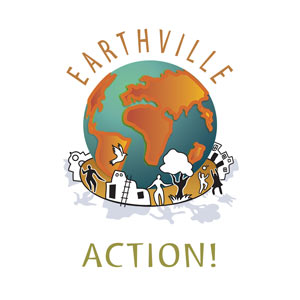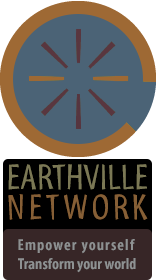 OK, we confess: It isn’t easy. (The title is a bit of an ironic joke on marketing.)
OK, we confess: It isn’t easy. (The title is a bit of an ironic joke on marketing.)
But it is doable.
And, on a certain level, it is simple. From our experience doing charitable work across the globe, we have seen that the basic formula for change is not all that complicated. So at least articulating the steps is easy. And that’s a good start, since reaching a destination is easier if we know a path.
Four Key Ingredients for Change
For most of the major challenges of the world and many of the issues we care about, the ingredients below can make a big difference. These four aren’t the only important things, naturally, but in many cases they’re enough to make a real shift.
1. Awareness
Education is the most powerful weapon which you can use to change the world.
— Nelson Mandela
There are a few basic things about this world that Earthlings need to understand. Not everyone has to understand, but we need critical mass.
- The problems: We need to be aware of the immense suffering and destruction in the world that is actually happening in our world (otherwise we can’t really appreciate the severity of the situation or the urgency of the need for change).
- The causes of the problems: We need to understand what’s causing this suffering and destruction so that we can recognize what needs to be changed and take responsibility for changing it (otherwise we’re unlikely to be able to find effective solutions, because one needs the right diagnosis before one can prescribe an effective treatment).
- The possibilities: We need to understand that there are things we can do to make a difference, to reduce the suffering and destruction and improve the odds for sustainable thriving (otherwise we’ll be overhwhelmed by bad news and we’ll lack the inspiration to make efforts to improve things).
- The solutions and the steps: To make big changes, we have to break them into small steps so that it’s easy for people to understand what to do, and so that actually doing it is feasible, practical, and manageable for a typical person (otherwise our great ideas won’t catch on, so we have to take it on ourselves to present the way forward in a way that makes it reasonably easy to walk, and ideally also inviting and compelling).
Here, we have to be clear that we are not saying that we, the would-be changemakers, know exactly what’s needed and our job is to lecture others. That kind of thing happens a lot, and it isn’t always helpful. In fact, the lecturing and moralizing approach to changemaking can be very counterproductive and alienating. So that’s not what we’re talking about here when we say “awareness.”
It’s important to understand awareness as a work in progress, never complete, and always with room for improvement (for all of us, not just “them”). So, the most valuable kind of awareness is an open-minded and humble awareness. We may think we know things, but we can be sure we don’t know everything, and we need to hold our minds open so we can keep learning.
Still, we have to do our best with what we have, so we need first to understand for ourselves as well as we can and then to share those understandings-in-progress humbly and respectfully with others and engage people in inviting and compelling dialogue so that they will have a better chance to invest themselves in the conversation and come to understand for themselves. In this way, we as a species will have the best odds of reaching that critical mass, where enough people understand enough of the reality (about both the challenges we face and the solutions by which we can overcome them) that the scales tip in a positive direction. We aren’t there yet, but we can get there.
2. Caring
From caring comes courage.
— Lao Tzu
The value of awareness is limited when the facts are often ignored. Why do people ignore or disregard such important realities?
Some people ignore information when they fear it isn’t in their interest (particularly those who have been led to believe life is a zero-sum game). Some ignore it because they’re preoccupied with their own immediate concerns (and they don’t yet recognize sustainability as one of those). Some ignore it because they find the truth painful and scary (not without reason). And some ignore it because they just aren’t paying attention to their hearts: They’re cut off from their natural caring, so they don’t feel much about the challenges and suffering in the world and they don’t know why they should care.
Open-heartedness is the solution to all of this. The force of caring, when active and healthy, overpowers our resistance to facing uncomfortable truths. The force of caring motivates us, drives to act.
Again, we don’t need to change everyone, but we do need a critical mass of open hearts, people with the courage to care. And this can be done. Hearts can be opened.
3. Creativity
I believe the most important thing for humankind is its own creativity.
— H.H. the Dalai Lama
An aware and caring person is naturally hungry for solutions. We already have a lot of great solutions, but we still need a lot more. Wherever we haven’t found solutions yet, that’s where we need creativity.
The power of human creativity is immense. When we apply that power to destructive ends, it is clearly very effective. When we apply it to solving problems (instead of creating them), we’re pretty much unstoppable.
To address the complex challenges of our times, we need to apply the full power of human creativity to the task of envisioning and engineering achievable solutions. We need to dream daringly and then engineer brilliantly to make the dreams practicable and scalable. We have what it takes for this. And once we do it, that brings us to number four…
4. Sustainable Perseverance
It is not your hard work that will contribute to the wellbeing of the world, but rather your happiness and way of being.
— Thich Nhat Hanh
“The key to failure is giving up too soon.” And we often do, especially in the field of sustainability work. Why?
Sometimes it’s burnout and fatigue. Sometimes it’s because it easy to volunteer for good causes but harder to find a paid job working on them, and most people need to earn a living. And sometimes it’s because we just aren’t enjoying it. Seriously, sometimes we take it all too seriously, heavily, and we don’t keep enough joy in our work to keep the wind in our sails.
The solution to all of this is sustainable perseverance: We need ways of working for important causes that are healthy, balanced, nourishing, and enjoyable — and most of us also need to be paid so we can live. Our work must be sustainable — for us, as humans. And this is addressable: With awareness, caring, and creativity, we can orchestrate holistic solutions that make it much easier to do well by doing good. We can apply these solutions in the business, nonprofit, and government sectors, and in our personal lives.
We can actually enjoy working with others in balanced and healthy ways to make this world a better place, and we can be paid well enough for that vitally important work that we can live comfortably and not feel that we’re making a painful sacrifice. Why shouldn’t it be this way? This is what we refer to as inner sustainability. We need inner sustainability to make long-term progress toward outer sustainability.
The World’s Most Challenging & Most Worthwhile Puzzle
By applying ourselves — as individuals and in groups (organizations/businesses/governments/nations/etc.) — to addressing these four issues, we can rise to the challenge and create a world in which all of us — all people, all species, and the planet we share — thrive sustainably.
It’s a big job. But is there anything else more urgent, more beneficial, or more worthy of our best creativity and joyful effort?
We truly believe we can get there if enough of us make the effort — and the effort is worthwhile even if we only make it partway there, so who are we not to start?
What Do You Think?
Share your thoughts, experiences, or questions in the comments section below.
Get Involved
We welcome you to explore Earthville, find your place within it , and add what only you can bring.
- Sign up: Drop by the “Earthville Embassy” page to become a “Citizen of Earthville.”
→ Join - Explore: Make your way around the Earthville website to discover what inspires you.
→ Quick Tour • Stories • Resources for Global Citizens - Participate: Connect with the Earthville community, online and on the ground.
→ Social • Events • Volunteer • Participate - Chip in: Give whatever you can to support our charitable work. Any amount helps.
→ Give

No comments yet.